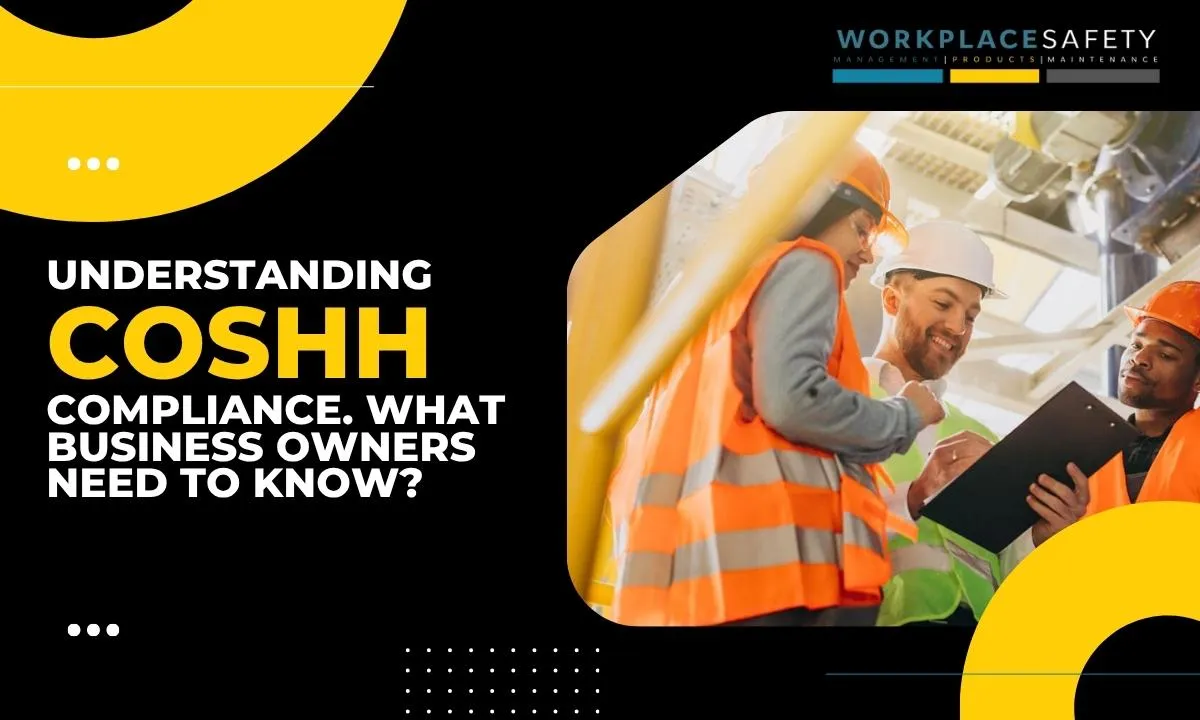
Understanding COSHH Compliance Workplace Safety System Blog
If you’re responsible for a business in engineering, manufacturing, food production, or even a small workshop, you’ve likely heard the term COSHH. But what does COSHH compliance really mean for your day-to-day operations, and how can you ensure your workplace stays safe and meets regulations? These UK regulations exist to protect employees from hazardous substances like dust, fumes, vapours, gases, and biological agents. Ensuring compliance isn’t just about avoiding fines; it’s about creating a safer, healthier workplace where your team can work confidently. By implementing the right procedures and safety measures, you can make COSHH compliance a practical part of running your business.
Alt Text: “Worker following COSHH compliance guidelines in an industrial workplace”
What is COSHH?
COSHH stands for the Control of Substances Hazardous to Health. It’s a set of UK regulations designed to protect employees from health risks associated with hazardous substances in the workplace. These substances can include dust, fumes, vapours, gases, and biological agents, many of which are common in industrial and production settings. Ensuring COSHH compliance means identifying and controlling these hazards effectively.
Learn More About COSHH Compliance.
Email us today at [[email protected]] to get started on a safer, compliant workplace.
Why is COSHH Important?
Failing to comply with COSHH compliance requirements can lead to hefty fines and endanger your team’s health. On the flip side, compliance promotes a healthier, more productive workplace where staff feel valued and protected.
Alt Text: "Employees working safely in a compliant workplace, highlighting the importance of COSHH compliance for health and productivity."
Key Components of COSHH Compliance
Risk Assessment
Every business must assess the risks posed by hazardous substances. Identify what substances are present, how employees might be exposed, and what harm could result.
Control Measures
Once risks are identified, put effective controls in place. Modern LEV systems are one of the most efficient ways to capture and remove airborne contaminants before they reach staff.
Maintenance and Testing
Control measures must be properly maintained and regularly tested. COSHH regulations require LEV systems to be examined and tested at least every 14 months (or more frequently in high-risk environments).
Training and Information
Employees must be trained on the risks and safe handling of hazardous substances. They should also know how to use control measures correctly and what to do in case of exposure.
Record Keeping
Keep detailed records of risk assessments, control measures, maintenance, and staff training. Documentation is your best defence during an audit or inspection.
Alt Text: “Local Exhaust Ventilation (LEV) systems in action, supporting workplace safety and COSHH compliance.”
How Workplace Safety Management Can Help
Navigating COSHH compliance can be daunting. That’s where workplace safety management comes in. We provide:
Full installation, replacement, and maintenance of LEV systems
Spare parts for all leading LEV brands to keep systems running smoothly
Scheduled COSHH testing and documentation support
Staff training and practical guidance every step of the way
Alt Text: “Workplace Safety Management team guiding staff and installing LEV systems to ensure COSHH compliance.”
Who Needs to Worry About COSHH?
If your business involves processes that create dust, fumes, vapours, or uses chemicals, even seemingly harmless ones, COSHH applies. This includes engineering, food production, woodworking, metalworking, and more.
Take the First Step to Compliance
Don’t wait for a health scare or an unexpected inspection to take COSHH compliance seriously. Being proactive with compliance not only safeguards your business but also demonstrates your commitment to your team’s well-being.